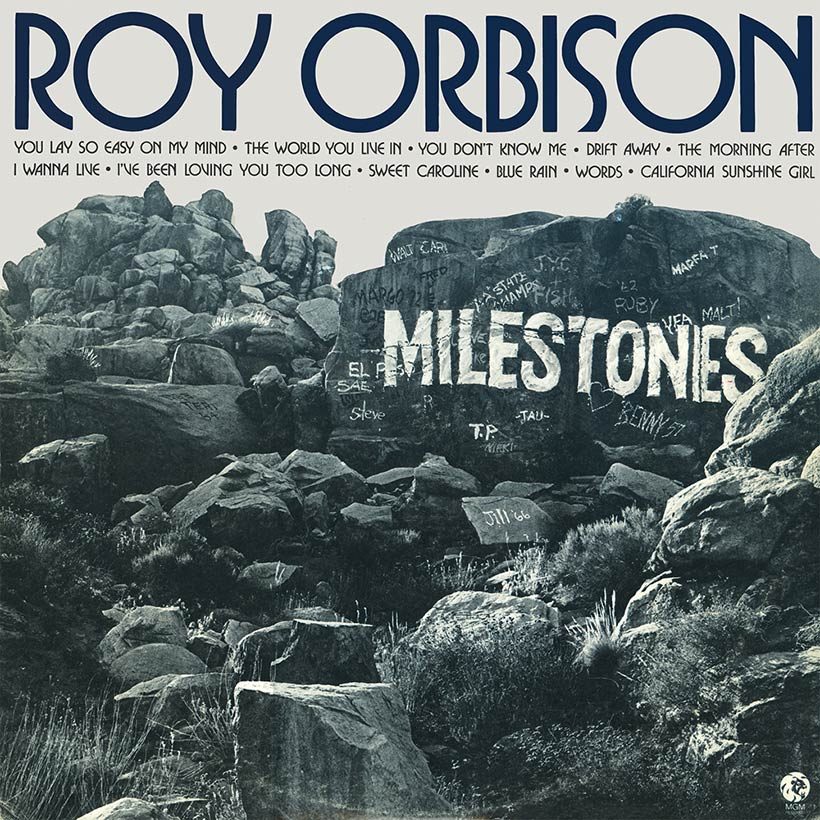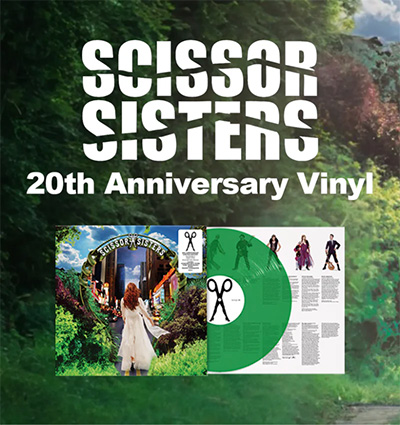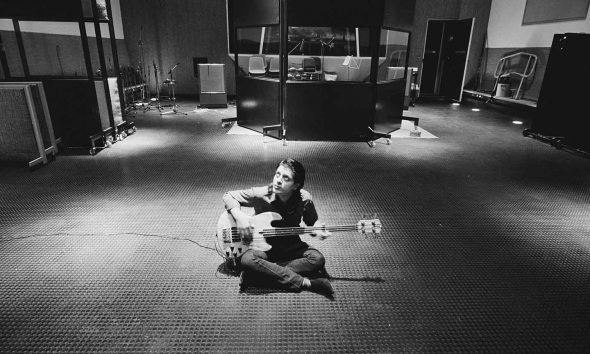‘Milestones’: Reassessing Roy Orbison’s Landmark Take On Country-Rock
Roy Orbison’s final MGM album, ‘Milestones’ is a curio containing masterful readings of Bee Gees’ ‘Words’ and a Big O take on country-rock.

Ask anyone about Roy Orbison and they’re likely to fall into raptures over those Monument recordings – the ones on which The Big O built his reputation – before perhaps fondly recalling his late-period renaissance as a Traveling Wilbury… And then maybe remembering “I Drove All Night” as a coda. Yet there’s an entire eight-year period, from 1965-73, during which Roy Orbison was at his most prolific, and which deserves closer inspection – particularly a 1973 curio titled Milestones.
Among the 12 albums he released in that period, you’ll find evidence of Orbison digging deep into his country roots and recording albums that pay tribute to icons Don Gibson and Hank Williams. There’s also a fascinating excursion into writing for film, as Roy soundtracked (and starred in) The Fastest Guitar Alive, a musical Western set during the American Civil War. Orbison played Johnny Banner, whose six-string transformed into a six-shooter in order to aid his attempts to steal gold bullion from the United States Mint in San Francisco.
Listen to Roy Orbison’s Milestones now.
Released on September 24, 1973, Milestones was Roy Orbison’s final album for MGM, and one of his most varied. His version of Cindy Walker and Eddy Arnold’s “You Don’t Know Me” might remind listeners of the Orbison of yore, as the orchestration builds and, in the closing seconds, he lets his voice soar in true Big O style. Elsewhere, however, Orbison credibly masquerades as a Hollywood hippie on “California Sunshine Girl,” while on a cover of “I’ve Been Loving You Too Long” he dials down Otis Redding’s pleading vocal, arguably finding even more desperation in restraint.
The album’s rear sleeve features a quote from Shakespeare: “The fault, dear Brutus, is not in the stars, but in ourselves, that we are underlings,” taken from Act I, Scene II of Julius Caesar. It’s perhaps a fitting quote for the album, as Orbison, hailed for having one of the most expansive voices in pop and rock music, assumes a curiously humble position throughout much of Milestones, not least on Roy’s cover of the Bee Gees’ 1968 single “Words.” Subtle pedal steel gives way to full-blown strings as the song builds, and Orbison cedes ground to a female backing chorus. Had he been listening to Leonard Cohen, or vice versa? Certainly, letting the backing singers take over was a trick that Laughing Len himself had grown fond of at the time.
Milestones failed to chart. Perhaps in the early 70s Roy Orbison’s take on country music was mistakenly dismissed as passé by those drawn to the burgeoning crop of artists tagged “outlaw country.” Perhaps the choice of singles – “Blue Rain (Coming Down)” and “I Wanna Live” – struggled to prove that he could hold his own among the country-rockers. Had Crosby, Stills & Nash recorded “Drift Away,” however, chart success would have beckoned; had Orbison’s version been released, the same could surely have been said for him. The album’s closing track, “The Morning After,” at least found an audience thanks to its inclusion in The Poseidon Adventure. The rest of the album remains buried treasure waiting to be discovered.












